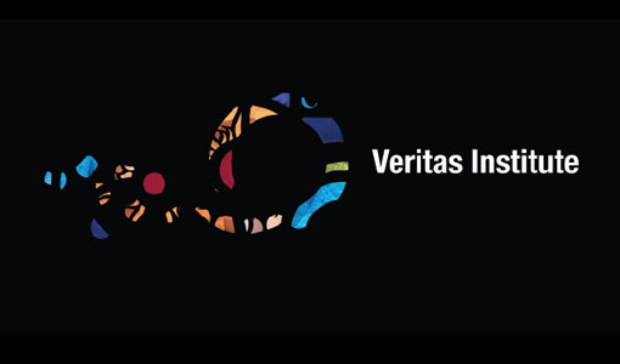Veritas is "truth" in Latin. Through the ages, the search for truth has driven the work of ethicists, including St. Thomas Aquinas, our university’s patron. In fact, "veritas" is the motto of the Dominican order, of which St. Thomas Aquinas was a member. What better way to convey the work of an organization whose goal is to foster ethically and socially responsible organizational conduct than by invoking truth in its very name?
Founded in May 2007, the SAIP institute was formed at the Opus College of Business with a lead gift from Harry R. Halloran Jr., an energy industry entrepreneur and philanthropist who believes that business is one of the most powerful drivers for positive social change. It was named for the Self Assessment and Improvement Process (SAIP), a proprietary method modeled after the Baldrige Performance Excellence Program. The method extends the Baldrige approach to issues of business ethics, governance and social responsibility.
"As our organization has evolved over the past five years, our partners and clients have suggested that we need a name that provides a better window on what we offer and value," said T. Dean Maines, the institute’s president. "Our stakeholders clearly resonate with the concept of veritas, or truth, which underscores the rigorous, evidence-based nature of our assessment tools. Similar to the Baldrige assessment process in the realm of total quality, tools based on the SAIP method provide data-driven insight into how well organizations have embedded ethical principles and values within the systems that shape their decisions and actions."
The Veritas Institute currently offers two tools that employ the SAIP method. The first, the Business Ethics Assessment Method (BEAM), is a corporate responsibility assessment that incorporates standards drawn from ISO 26000. The second, the Catholic Identity Matrix (CIM), helps a Catholic health system or hospital assess and enhance the degree to which it has integrated six principles drawn from the Catholic moral tradition within its management system. The enhanced Catholic Identity Matrix is the product of a collaboration between Ascension Health and the Veritas Institute, with support from the John A. Ryan Institute for Catholic Social Thought at the University of St. Thomas.
"No tool or process, including this one, can by itself institutionalize corporate conscience," said Kenneth E. Goodpaster, UST Koch Chair in Business Ethics. "But it is reasonable to believe that an honest, forthright application of the tools available from the institute might uncover behavior and tendencies like those that undermined Enron, Andersen, and other companies. The Veritas Institute’s BEAM illuminates the gap between a company’s current state and progress toward its destination, not unlike the headlights of a car at night."
The institute’s business ethics assessment tools provide guided self-appraisals that are thorough, systematic, qualitative and quantitative. The newest adaptation, the BEAM, allows a company to better analyze how well it has operationalized ISO 31000 core issues, such as organizational governance, human rights, labor practices, the environment, fair operating practices and a variety of consumer issues. By comparing a corporation’s answers to a series of quantifiable guidelines, the organization can characterize its performance on specific dimensions of ethical conduct. These scores permit leaders to identify areas of relative strength and opportunities for improvement.
Establishing and maintaining institutional identity is a significant challenge for leaders in Catholic health care. The CIM helps a Catholic health system or hospital assess and enhance the degree to which it has integrated the six Catholic moral principles within its operating policies, processes and practices. Using those six moral principles, the assessment highlights both areas of strength and critical improvement opportunities; furthermore, the information gathered during the process helps an organization create initiatives designed to address specific improvement needs.
Ascension Health Vice President of Mission Initiatives William Brinkman commented on the strong partnership that has been developed between Ascension Health and the Veritas Institute since 2007: "Veritas has been a trusted partner and more; they have co-created with us Ascension Health’s system for mission assessment. The proven methods and experienced personnel of Veritas have provided process integrity and organizational insight to our assessments. They gave us the capability to move from anecdotal assumptions to quantitative measurements of how well we are living our values."
In addition to the CIM and the BEAM, the Veritas Institute works with academic partners inside and outside of the University of St. Thomas to support research and teaching on implementing ethical business conduct. In addition, the Veritas Institute works tirelessly to improve and extend the BEAM and CIM to new applications. Whatever its name, the institute will continue its work to "advance the common good through positive social impact." This motto reflects the values of the institute, the Opus College of Business and the University of St. Thomas, especially the respect for the dignity of the human person, support for the common good, the pursuit of truth and a belief in the compatibility of faith and reason.
Read more from B. Magazine





